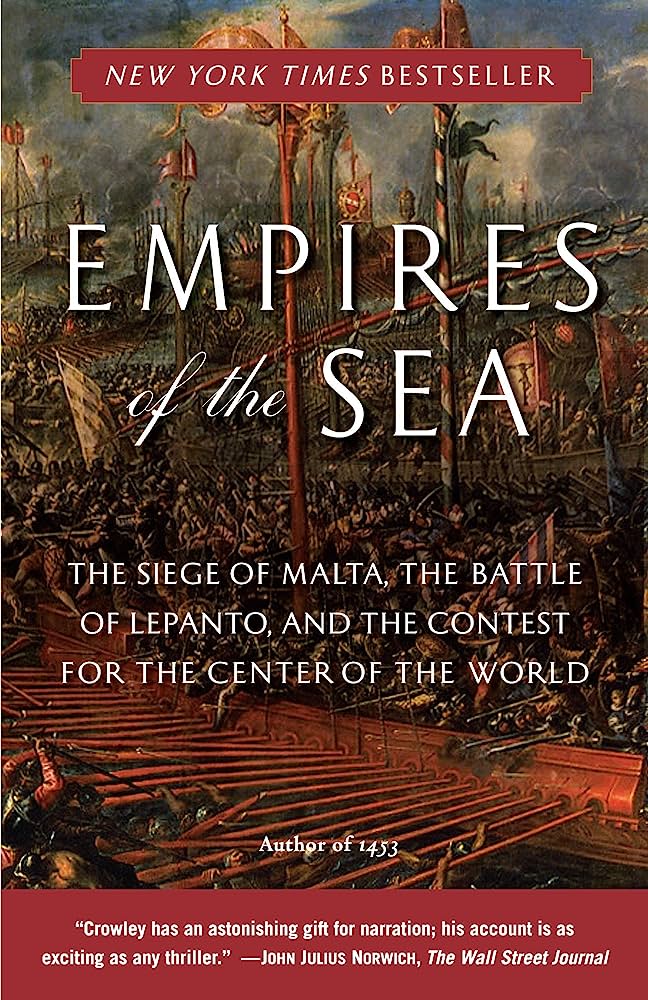|
Empires of the Sea
By Roger Crowley Published in May 2009 368 Pages Thibault’s Score: 4/5 Empires of the Sea is an account of the naval battles fought in-between Christianity and Islam in the early modern era. At the dawn of the 15th century, the Ottoman Empire was rapidly expanding. Constantinople fell in 1453. The Persians were defeated in 1514. The last crusader bastion - Rhodes - fell in 1522. The Hungarians were destroyed in 1526. The Ottoman end goal was the capture of Rome, and the creation of a new Islamic Roman Empire. The forces of Christianity were worried. Almost all of the major battles in the later half of the 1500s would take place on the Mediterranean Sea. The key players would be Habsburg Spain, Venice, Genoa, the various remnant crusader orders, and to a lesser extent France. This book first covers the Ottoman capture of Rhodes. It then goes on to explain the strategic considerations that went into Westward maritime expansion. Naturally, Crowley follows by giving terrifying accounts of the North African pirates in Ottoman service. Then come the three major battles of Malta, Cyprus, and Lepanto. What is fascinating is how fast the world was changing politically and technologically. Typically, I read about earlier periods, usually the Middle Ages. The world of the Middle Ages is technologically flat, and politically fragmented. However, the world of the early modern mediterranean is very different. First, the discovery of the new world completely changes the dynamics of European expansion. Technological improvements - namely in ship technology and gunpowder technology - completely transform the dynamics of individual battles. Maritime-land operations, such as the capture of coastal fortresses, are critical. Sieges last for months rather than years. Finally, Islam is no longer dynamic and innovative. For the first time, Muslims are falling far behind Europeans, mostly due to their tyrannical governments. I’ve read almost every book by Roger Crowley, and can confirm that he is one of my favorite historians. His books always manage to paint a vivid blood-curdling image of what seeing the battles in person might have been like. They are fast paced, manage to capture the essence of key characters, and perfectly walk the fine line between giving too much and too little context. I recommend this book highly to anyone who is looking for an easy introduction to the world of early modern geopolitics. You can likely pick up, and appreciate, this book without much prior historical knowledge. It will not give you revolutionary insights about the course of history, fate of modern nations, or even the early modern era - but it will entertain and inform you.
0 Comments
Leave a Reply. |
Thibault SerletMost of my articles are book reviews, but I also write about many other topics. Archives
December 2023
Categories |

 RSS Feed
RSS Feed